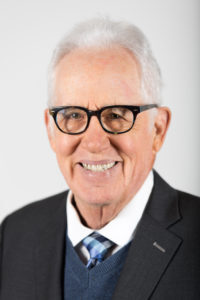FOR IMMEDIATE RELEASE
New Jersey College Research Team Publishes Article on Coronavirus Coverage in Prestigious Journal
EWING, NEW JERSEY September 1, 2020- Six communication studies students and a professor recently published an article on nationwide coverage of federal government responses to the coronavirus crisis, finding that media manifest clear disappointment that the national government has not robustly protected the public.
As part of a double-volume issue published in Spanish journal Trípodos, the article was co-authored by students from The College of New Jersey (TCNJ) Suchir Govindarajan, Alexis Marta, James N. Sparano, Miranda Crowley, Abigail Lewis, and Radhika Purandare, and Professor of Communication Studies and Public Health John C. Pollock.
Based on a content analysis project in a class on Global Health Communication and Social Change taught by Pollock in spring 2020, the students compared city demographics in 18 major cities throughout the US from Jan. 28, 2020 through April 3, 2020, with variations in favorable or unfavorable coverage of federal government response to the COVID-19 pandemic.
“The team found that the higher the proportion of ‘privileged’ measures –– representing groups ‘buffered’ from economic uncertainty –– in a community –– for example, physicians/100,000, hospital beds/100,000, or percent population in economically privileged age groups 45-64, 65+ –– the “less” favorable the coverage of the federal coronavirus response,” Pollock explained. “This finding has been identified by my community structure theory –– comparing different community demographics with varied coverage of critical issues –– as a ‘violated buffer’ pattern, in which negative coverage of ‘biological threats or threats to a cherished way of life’ is linked proportionately to levels of community privilege.”
Miranda Crowley said the students were originally tasked with designing a global health campaign to combat COVID-19 exposure in airports, but Pollock approached the students with the opportunity halfway through the semester.
“After having read numerous international reports on the virus, our team jumped at the chance to study domestic media coverage of the pandemic,” she said. “We began data collection the week after spring break and were forced to adapt our normal teamwork dynamic to accommodate remote learning barriers and lockdown mandates.”
Crowley said the students not only learned more about the virus and its representation in U.S. media, but also how to conduct a research study via Zoom. “In the end, we learned not only how to perform content analysis but also how to conduct a research study that requires immense collaboration without the benefit of in-person meetings,” she added. The article can be viewed on Trípodos’ webpage.
In the future, Crowley plans to pursue a Master of Public Administration and a J.D. in civil rights law. She hopes to use both degrees to influence the future of social and health policy on either the state or national level.
“This study alone has afforded me a more complete understanding of not only COVID-19 but also the underlying issues within our nation’s healthcare, social welfare, and economic systems,” she said. “As someone who hopes to one day influence policy, opportunities to holistically analyze a social, political, or economic issue such as COVID-19 are invaluable.”
The student co-authors join a large group of several hundred former students who have co-authored refereed papers, articles, chapters, even a book over the 28 years Pollock has taught at TCNJ.
“Student-generated papers often produce invitations to scholarly conferences, especially in health communication, a special strength of the departments of communication studies and public health,” Pollock said. “Both departments are honored to teach students with the intelligence and motivation that led to a paper on coronavirus coverage of such obvious quality that it was immediately accepted for publication in a distinguished Spanish communication journal.”
Professor John C. Pollock is a full professor of Communication Studies and Public Health. Having taught at TCNJ for 28 years, Pollock also currently serves as senior marketing strategist at New Jersey strategic marketing agency Crothers Consulting. The renowned teacher previously advised both Fortune 500 companies, such as Miller Lite and Gillette, and nonprofits, like the Aspirin Foundation and American Board of Family Practice, as public relations counsel.
####################################################################
Contact Information Crothers Consulting [email protected]






